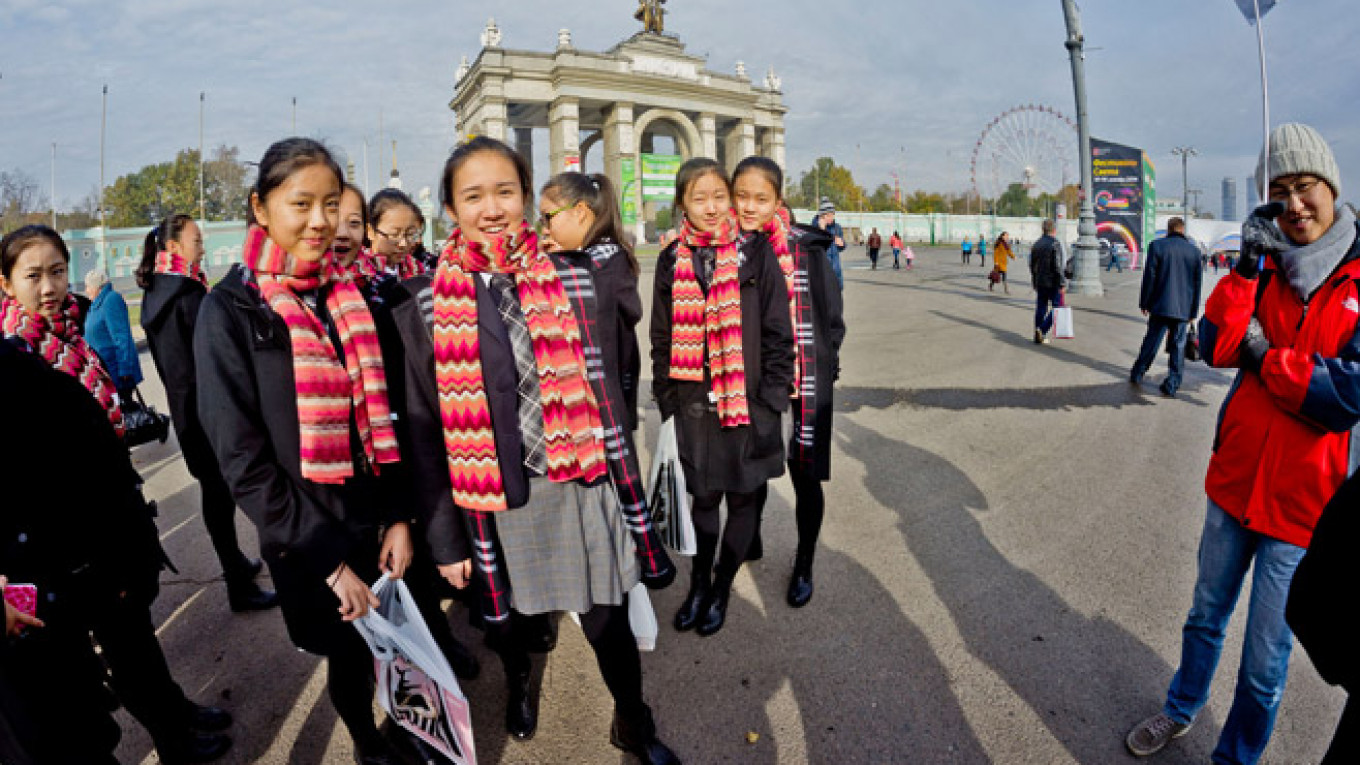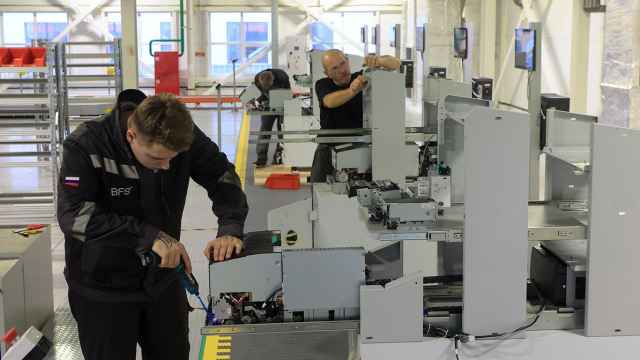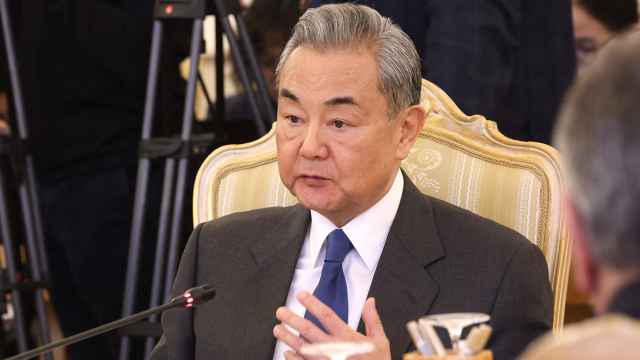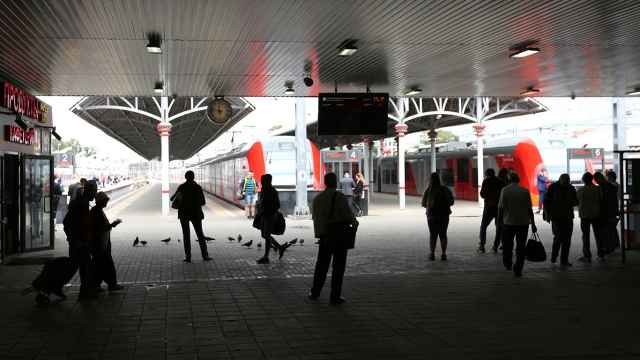Russia and China plan to increase the number of students studying under mutual exchange programs to 100,000 in five years, Russian media has reported, shortly after Moscow canceled a popular exchange program with the U.S.
The announcement came ahead of a meeting between Russian Prime Minister Dmitry Medvedev and his Chinese counterpart Li Keqiang in Moscow on Monday, when several dozen cooperation agreements on trade, investment, energy and cultural affairs were expected to be signed.
Currently, about 25,000 Chinese students are attending Russian colleges and universities, while 15,000 Russian students are studying in China. Moscow and Beijing plan to raise the total number to 100,000 by 2020, Interfax reported Monday, citing an unidentified source from the Russian Cabinet.
As part of the 2014-15 Russia-China Youth Friendly Exchange program — a bilateral year set up to strengthen cultural ties — more than 300 events in both countries were scheduled throughout the year, with more than 7,000 students having taken part so far, according to the spokesperson.
The spokesperson also announced that China had taken first place in the number of visits to Russia this year, with more than 500,000 Chinese citizens coming to Russia in the first six months of this year alone.
"Last year, China came in second by the number of tourists visiting Russia [with 370,000 visits]. But in the first six months of 2014 alone, China has already taken the leading position — more than 500,000 Chinese citizens have visited Russia so far, and 135,000 of them were on tourist trips," the source was cited as saying by the TASS news agency.
The apparent surge in Russia's popularity comes as Moscow pivots toward China amid deteriorating relations with the West.
Even as China and Russia vowed to increase and strengthen student exchange programs on Monday, some Russian students were likely still reeling from Moscow's recent decision to suspend an exchange program with the U.S. that had been running successfully for two decades. Russian officials have said that the FLEX, or "Future Leaders Exchange," program was getting scrapped because a Russian student stayed in the U.S. instead of returning home.
Russia's turn eastward is also thought to be aimed at softening the economic blow from Western sanctions imposed over the annexation of Crimea and Russia's alleged meddling in Ukraine, as well as the ban on Western food imports that Moscow has imposed in response.
With Western investments leaving Russia earlier this year, China appears to have quickly stepped in. But agreements signed so far indicate that Beijing is primarily interested in Russia's natural resources, with the remaining trade apparently going to Russian military technologies.
A deal signed in May, which Russian President Vladimir Putin praised as "epochal," is expected to deliver billions of cubic meters of natural gas to China's growing economy, at a price that some officials have suggested could be less than what Russia is getting under earlier discount contracts for its gas deliveries to Europe.
While the price of the deal has not been disclosed, sources at the companies involved said Russia's state-controlled gas giant Gazprom refused to go below $350 per thousand cubic meters, compared with a discount rate of $350-$380 under long-term contracts with European utilities, Reuters reported.
On Monday, the two leaders were expected to discuss investment in that project, called the "Power of Siberia" pipeline. The pipeline, which has yet to be built, will link east Siberian gas production with China.
Observers have expressed concerns about the project's financing and further progress, however, noting that while Chinese investors' hands are not tied by Western sanctions, they may be less motivated to cooperate.
Russia has been seeking to diversify projects and go beyond raw material exports that dominate the trade, "but China is not interested," the head of the Asian Studies School at the Higher School of Economics in Moscow, Alexei Maslov, was quoted as saying by Bloomberg on Sunday.
China has expressed an interest in Russia's weapons systems, however.
Arms trade had been held back for decades by Russia's concerns about China's ability to reverse-engineer its weapons, but Putin agreed this spring to sell S-400 missile systems to Beijing, which had been seeking them for several years, Lenta.ru has reported.
Contact the author at newsreporter@imedia.ru
A Message from The Moscow Times:
Dear readers,
We are facing unprecedented challenges. Russia's Prosecutor General's Office has designated The Moscow Times as an "undesirable" organization, criminalizing our work and putting our staff at risk of prosecution. This follows our earlier unjust labeling as a "foreign agent."
These actions are direct attempts to silence independent journalism in Russia. The authorities claim our work "discredits the decisions of the Russian leadership." We see things differently: we strive to provide accurate, unbiased reporting on Russia.
We, the journalists of The Moscow Times, refuse to be silenced. But to continue our work, we need your help.
Your support, no matter how small, makes a world of difference. If you can, please support us monthly starting from just $2. It's quick to set up, and every contribution makes a significant impact.
By supporting The Moscow Times, you're defending open, independent journalism in the face of repression. Thank you for standing with us.
Remind me later.






